
Badlands Media will always put out our content for free, but you can support us by becoming a paid subscriber to this newsletter. Help our collective of citizen journalists take back the narrative from the MSM. We are the news now.
The Investigation Unveiled
On August 8, 2022, a startling turn of events shook the serene embrace of Palm Beach, Florida.
The Federal Bureau of Investigation (FBI) descended upon the Mar-a-Lago estate, the cherished abode of former Commander-in-Chief, Donald J. Trump. What followed was a scene reminiscent of a thrilling action novel—a bold move orchestrated by the FBI armed with a search warrant authorized by U.S. Attorney General Merrick Garland and stamped with the approval of Magistrate Judge Bruce Reinhart. This audacious move came in the wake of a referral from the National Archives and Records Administration (NARA), a move tinged with political maneuvering.
The unsealed warrant exposed a multi-faceted investigation into the former president, encompassing potential violations of the Espionage Act and involving unauthorized retention of national defense information. Additionally, the FBI probed into allegations of activities intended to destroy or conceal records—a potential attempt to impede, obstruct, or influence the delicate machinery of the federal government. Lastly, the ominous shadow of illegal removal or destruction of federal government records loomed, casting doubt on transparency and accountability.
Yet, dear reader, behind the veneer of official motives lurked a sinister truth that threatened to unravel the delicate fabric of American politics.
This investigation had all the hallmarks of a politically motivated assault on an opposing leader—a move that could set a precedent with far-reaching consequences, potentially plunging the United States into political turmoil reminiscent of third-world countries. The stroke of a pen cast a shadow of suspicion over an entire history of service and dedication, with consequences that could propel the nation towards an abyss of political strife.
The Clash of Titans
As the affidavit emerged, redacted, yet revealing, the nation glimpsed the FBI's intentions as they ventured into the inner sanctum of power. The year 2021 saw NARA's attempt to recover materials, met with Trump's thorough perusal of his possessions. Mar-a-Lago's halls witnessed a flurry of activity, with boxes shuffling in and out, while the Justice Department observed, hawk-like. It became evident that classified documents had been deliberately concealed and removed, as if the heart of the investigation was shrouded.
Voices of supporters and the ex-president himself resonated loudly across social media. They claimed Trump acted within the boundaries of the "Presidential Records Act (PRA) of 1978," a cornerstone of preserving leaders' legacies. The PRA, with its intricate web of regulations, governed the ownership, custody, and management of presidential records. However, even this well-crafted statute now appeared susceptible to manipulation.
The unfolding drama, pitting justice against power, thrust President Trump's legal rights, grounded in the PRA, into the spotlight.
The bedrock principles upholding the sanctity of presidential records twisted into a new kind of battle—of legal interpretation and political posturing. The very fabric of American democracy frayed, its future hanging pendulum-like, ready to swing the nation into political turmoil akin to the darkest corners of the world.
Indictment Stirs Controversy: Trump Accused Amidst Claims of Political Motivation
In an unexpected twist, former President Donald Trump now faces a 37-count indictment centered around allegations of mishandling records at his luxurious Mar-a-Lago estate. As the legal drama unfolds, many question the motives behind these charges, suggesting politics may significantly influence this high-stakes battle.
The recently-unsealed indictment has drawn considerable attention, shedding light on sensitive records allegedly retained by Trump after his presidency. The charges imply he shared this material with unauthorized individuals and attempted to obstruct any efforts to recover the documents. Critics argue this might be a politically motivated move, casting doubt on the impartiality of the legal proceedings.
Superseding Indictment U.S v. Trump, Nauta & De Oliveira July 27, 2023
The accusations stem from Trump's alleged attempts to prevent the return of the mentioned documents. These claims follow a subpoena last year, prompting Trump to allegedly instruct his attorney to "hide or destroy" the materials. This revelation sparks a debate about whether these actions reflect a genuine intent to obstruct justice or are a result of heightened political tensions.
While the indictment paints a grim picture of Trump's actions, his supporters emphasize the broader context of the classified information. These documents reportedly encompassed a range of topics, including defense capabilities, U.S. nuclear programs, and military attack contingency plans. Proponents argue that this information, regardless of its classification, could be valuable knowledge for a former president without jeopardizing national security.
The Chessboard of Espionage
A significant aspect of the indictment revolves around charges under the Espionage Act, carrying a potential decade-long prison sentence. Critics warn against letting the political nature of these accusations overshadow the nuances of the law; they argue that the charges might not necessarily reflect a genuine threat to national security, but rather be part of a larger narrative aiming to tarnish Trump's legacy.
The controversy surrounding the indictment brings attention to special counsel Jack Smith's role. While he encourages the public to fully understand the "scope and gravity of the crimes charged," skeptics view his involvement with suspicion. They suggest Smith's statements might shape public perception, raising questions about the true nature of these charges.
A President's Proclamation
Trump, denying any wrongdoing, stands as the only former president ever charged with a crime.
"I have been indicted, seemingly over the Boxes Hoax," Trump posted on Truth Social. "I never thought it possible that such a thing could happen to a former President of the United States, who received far more votes than any sitting President in the History of our Country, and is currently leading, by far, all Candidates, both Democrat and Republican, in Polls of the 2024 Presidential Election. I AM AN INNOCENT MAN!"
As the legal battle unfolds, it remains uncertain whether the accusations against Trump will be perceived as a genuine pursuit of justice, or as part of a broader political agenda.
For Trump's supporters, the Department of Justice seems to be wielded against him and his followers. The Mar-a-Lago incident serves as a stark reminder that political biases can seep even into the realms of law and order, potentially distorting accountability.
The Fight for America’s Soul
The Perils of Politically-Motivated Imprisonment: Safeguarding Democracy
In a democracy, the rule of law should be an unwavering beacon of fairness and justice, free from the taint of political agendas. However, the specter of imprisoning citizens, or even presidential candidates due to political bias raises profound concerns about the integrity of the justice system and the very essence of democratic values.
Erosion of Civil Liberties
When individuals are imprisoned based on political bias, the fundamental civil liberties enshrined in the Constitution hang in the balance. The right to free speech, assembly, and political participation become endangered, as citizens fear expressing dissenting opinions out of concern for becoming targets due to their viewpoints.
Undermining Trust in Institutions
Politically motivated imprisonment chips away at public trust in the justice system and institutions meant to uphold the rule of law. When citizens perceive that the system bends to the interests of a particular group, their faith in the democratic process erodes, fracturing societal cohesion.
Polarization and Division
Imprisoning citizens or candidates due to political bias exacerbates societal divisions. Such actions fuel heightened polarization, with individuals rallying behind the incarcerated, fostering an ‘us versus them’ mentality that weakens the unity of society.
Suppression of Dissent
A society tolerating politically motivated imprisonment stifles dissenting voices. When people fear the consequences of expressing their beliefs, the healthy exchange of ideas dwindles, hampering progress, innovation, and the necessary checks and balances on those in power.
Weakening Democracy
The bedrock of democracy lies in the peaceful transition of power based on the will of the people. Imprisoning political opponents disrupts this mechanism, casting doubt on the legitimacy of elections and eroding the very foundation of democratic governance.
International Reputation
Politically motivated imprisonment can tarnish a nation's global reputation. It signals a disregard for human rights and democratic principles, straining diplomatic relations and impacting international cooperation.
Long-Term Consequences
The aftermath of politically-biased imprisonment extends beyond the immediate situation. It can foster resentment and plant seeds for future political instability, perpetuating cycles of retaliation and further erosion of democratic norms.
A Call to Action for the Republic's Redemption
Reclaiming the Republic: Urgent Steps to Combat Politically Motivated Imprisonment in the U.S.
As the United States grapples with the aftermath of politically motivated imprisonment, an urgent imperative emerges to salvage the very core of the republic. Citizens and analysts alike voice concerns about eroding civil liberties and a justice system tainted by political bias. In the midst of this turmoil, the call to rectify the situation resonates urgently. Amidst these disconcerting events, we explore potential pathways that could restore justice, fairness, and liberty for all.
Bolstering the Pillars of Justice
Central to the solution is the vital task of fortifying the judiciary's independence. A robust judicial system, untouched by political influence, is key to revitalizing faith in the rule of law. Achieving this demands introducing safeguards that shield judges from political pressures. These measures would ensure that legal verdicts rely on credible evidence, precedent, and impartiality—dictated not by partisan agendas, but by the principles underpinning the republic.
Transparency: A Guiding Light
Transparency emerges as a beacon of hope in the quest to reclaim the essence of the republic. Establishing independent bodies to investigate allegations of politically motivated imprisonment stands as a pivotal step towards reinstating public trust. Through transparent investigations, these bodies can unveil the truth and expose abuses of power that mar the ideals of the republic. In doing so, the public can witness accountability in action, holding those who misuse their authority for political ends to a higher standard.
Reforming the Sentinels of Law
The reform of law enforcement agencies occupies a crucial front in this struggle. To counteract the influence of political agendas on investigations and arrests, sweeping changes are imperative. Comprehensive reforms, including enhanced training, stringent oversight mechanisms, and unequivocal protocols can ensure that justice prevails without yielding to the pressures of political bias.
Champions of Accountability
Upholding the republic's integrity also entails championing the genuine protection of whistleblowers and those who expose political manipulation within government ranks. Empowering these brave individuals is crucial to identifying and rectifying systemic issues that fuel politically motivated imprisonments.
A Free Press as Sentinel
In this narrative of redemption, an independent and unrestricted media plays a pivotal role. By safeguarding media freedom, the republic can establish a bulwark against manipulation. A vibrant media landscape serves as a vital check on those in power, uncovering political biases and revealing unfiltered truth. Upholding a free media ensures that citizens remain well-informed, better equipped to counterbalance forces threatening their liberties.
Strength in Unity: Civil Society and Reform
Civil society organizations, guardians of human rights and justice, wield significant strength. Empowering these entities is critical to advocating for accountability and reform, ensuring the republic's institutions remain transparent and impartial.
The Road to Reform: Legal and Institutional Changes
Comprehensive legal and institutional reforms stand as essential necessities. Reviewing laws related to arrest, detention, and prosecution can close avenues for political manipulation, paving the way for a more just republic. Coupled with international oversight aligning domestic efforts with global human rights standards, these reforms wield immense power to initiate real change.
Electoral Integrity: A Non-Negotiable Imperative
Yet, all these efforts are futile without securing fair and honest elections. The foundation of a functional democratic republic rests on electoral integrity. To safeguard the republic's future, prioritizing electoral transparency and accuracy becomes an unequivocal necessity.
A Ray of Hope Amidst Turmoil
The republic stands at a precipice, its core ideals challenged by politically motivated imprisonment. However, resilience courses through the nation's veins, and citizens possess the power to instigate change.
Embracing a multifaceted approach—incorporating legal reforms, institutional overhauls, and cultural shifts—the republic can embark on a journey of reclamation. Through unified efforts, the United States of America can emerge stronger, reigniting its founding principles and restoring the liberties that distinguish it on the global stage.
In this crucible where justice, politics, and history intersect, the republic's fate teeters. Will it succumb to the shadows of power, or will it rise, fortified by the principles shaping its essence? Only time holds the answer, but for now, I leave you with this thought from an American Icon:
“The ultimate measure of a man is not where he stands in moments of comfort and convenience, but where he stands at the times of challenge and controversy.” – Martin Luther King Jr.
Badlands Media articles and features represent the opinions of the contributing authors and do not necessarily represent the views of Badlands Media itself.
Alpha Warrior is a US MIL Veteran and co-host of several Badlands Media shows, including SITREP and Roll Call. If you enjoyed this contribution to Badlands Media, please consider checking out more of his work for free on Substack.




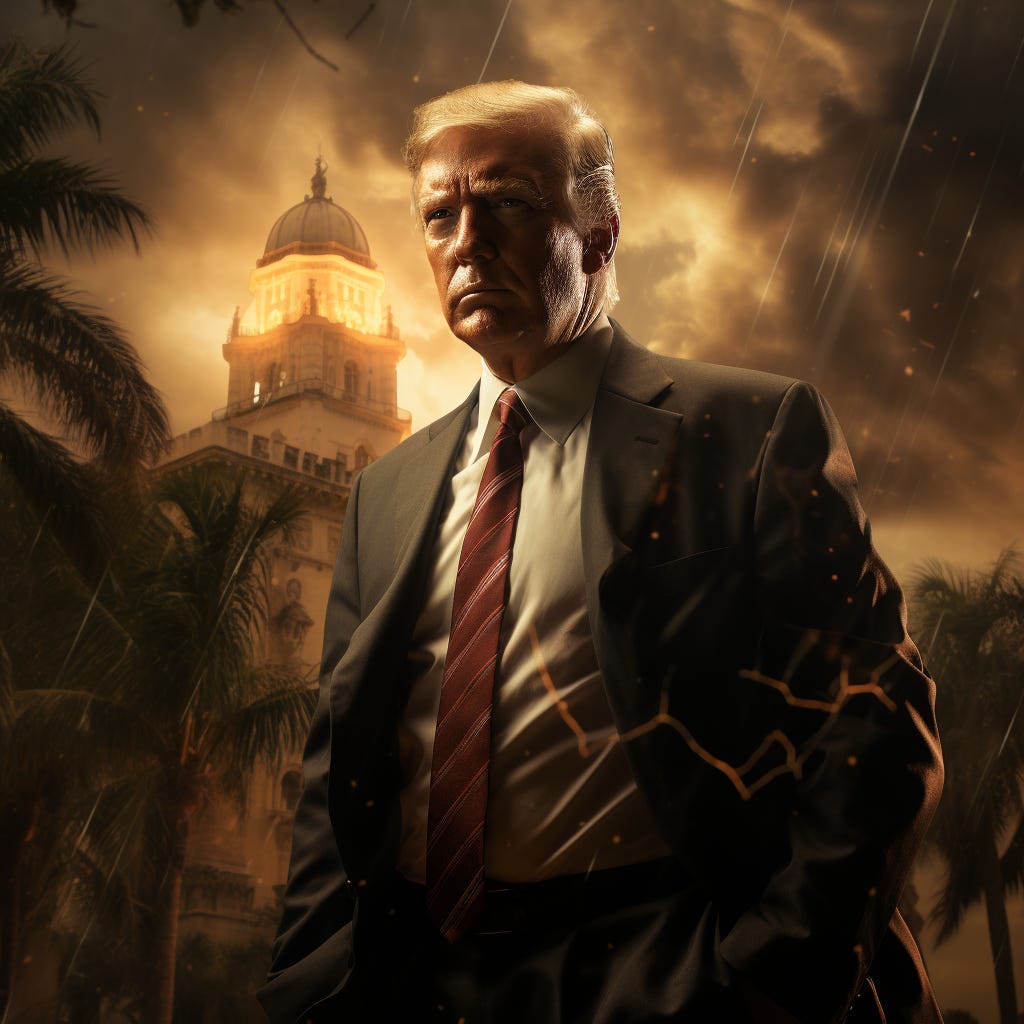
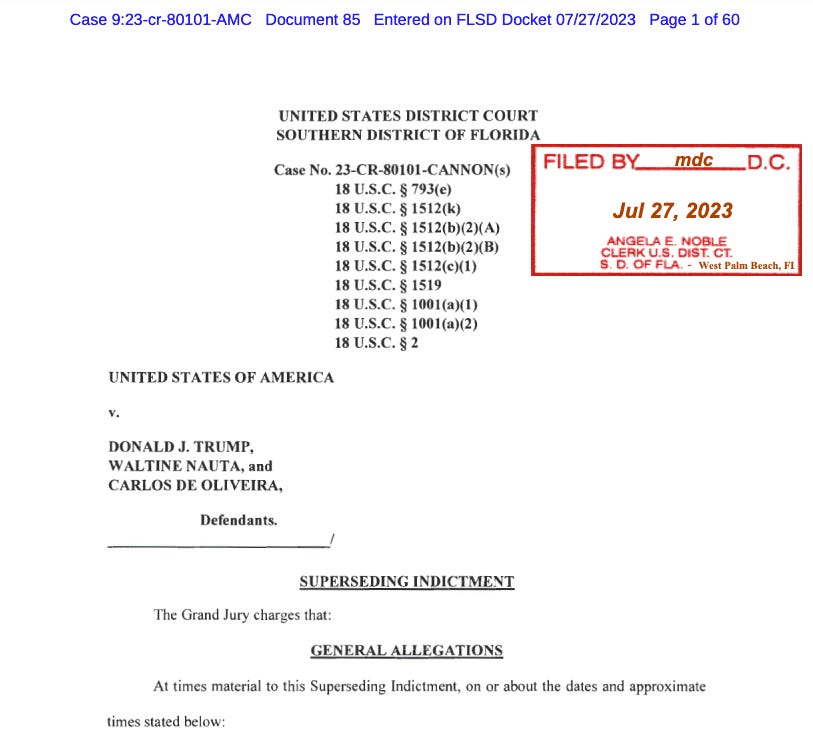
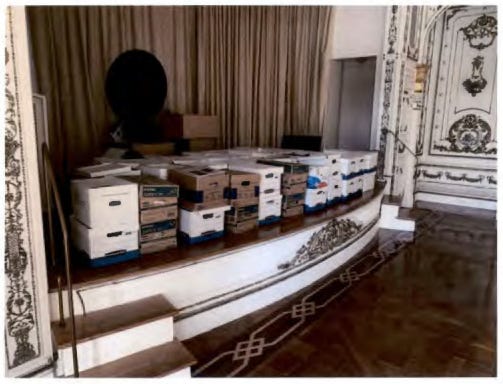
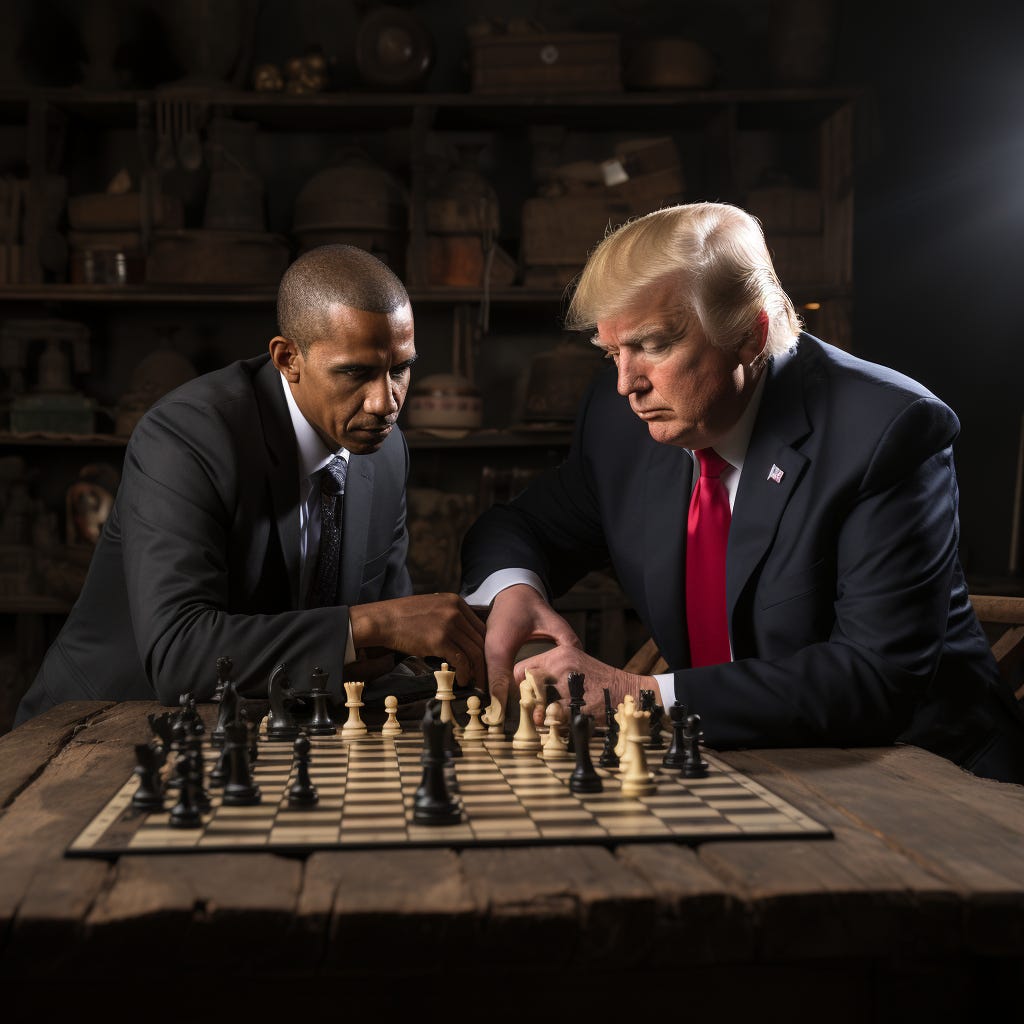
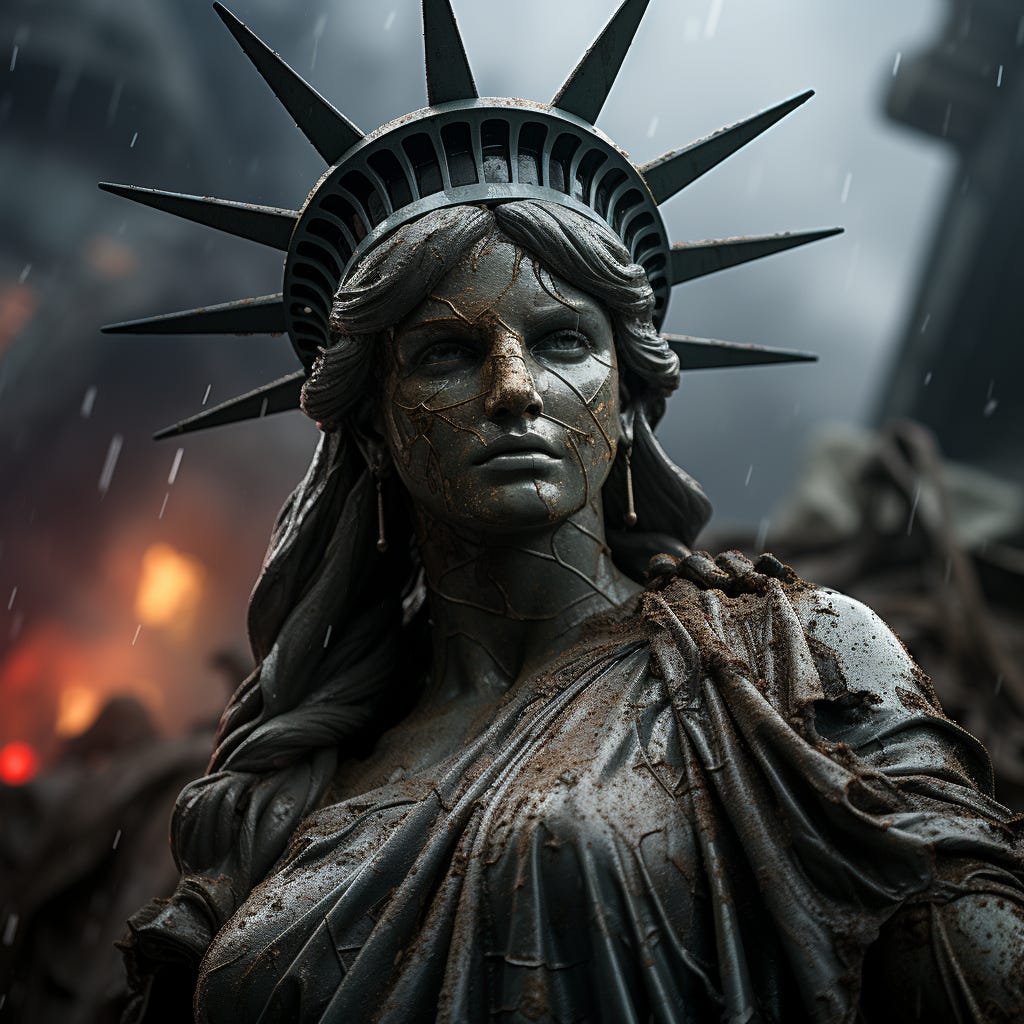






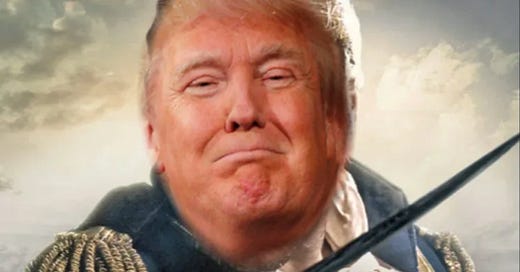

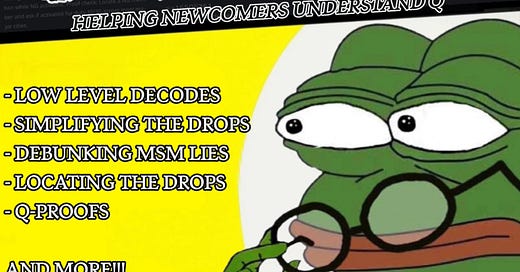



Excellent work my friend!
Seems to me that DS might be desperately looking for the STUFF Trump claims to have on all of them. Just sayin'.